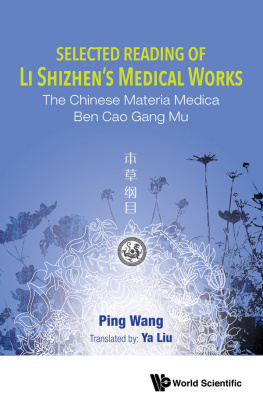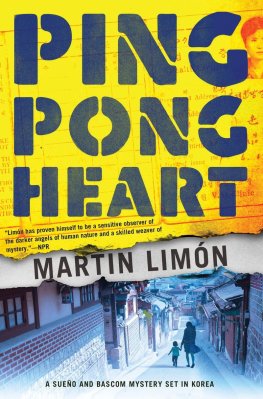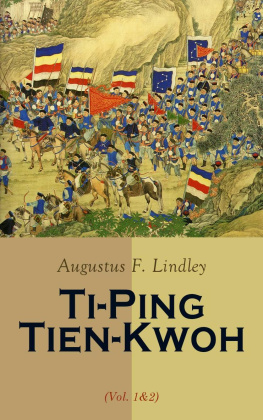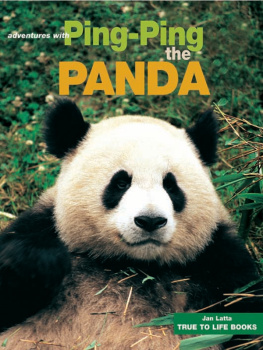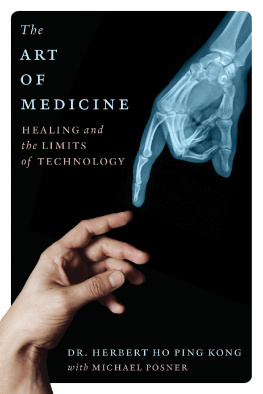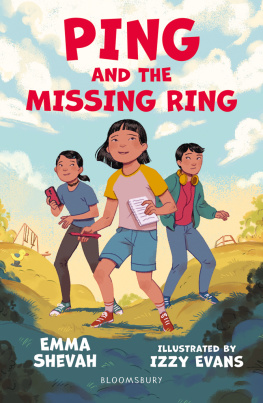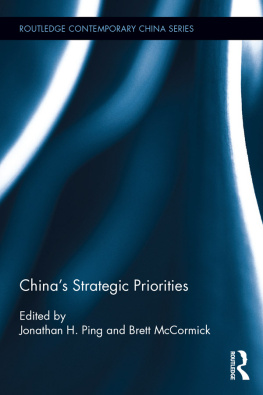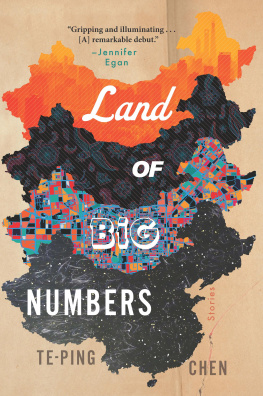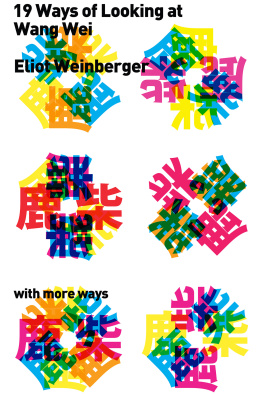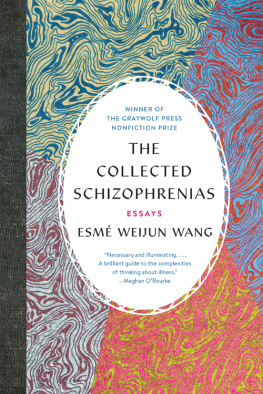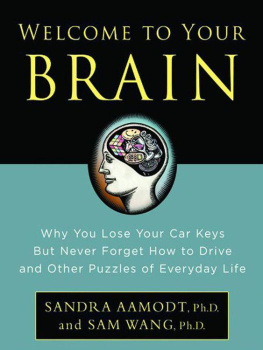Ping Wang - Selected Reading of Li Shizhens Medical Works
Here you can read online Ping Wang - Selected Reading of Li Shizhens Medical Works full text of the book (entire story) in english for free. Download pdf and epub, get meaning, cover and reviews about this ebook. year: 2021, publisher: World Scientific, genre: Science. Description of the work, (preface) as well as reviews are available. Best literature library LitArk.com created for fans of good reading and offers a wide selection of genres:
Romance novel
Science fiction
Adventure
Detective
Science
History
Home and family
Prose
Art
Politics
Computer
Non-fiction
Religion
Business
Children
Humor
Choose a favorite category and find really read worthwhile books. Enjoy immersion in the world of imagination, feel the emotions of the characters or learn something new for yourself, make an fascinating discovery.
Selected Reading of Li Shizhens Medical Works: summary, description and annotation
We offer to read an annotation, description, summary or preface (depends on what the author of the book "Selected Reading of Li Shizhens Medical Works" wrote himself). If you haven't found the necessary information about the book — write in the comments, we will try to find it.
Ping Wang: author's other books
Who wrote Selected Reading of Li Shizhens Medical Works? Find out the surname, the name of the author of the book and a list of all author's works by series.
Selected Reading of Li Shizhens Medical Works — read online for free the complete book (whole text) full work
Below is the text of the book, divided by pages. System saving the place of the last page read, allows you to conveniently read the book "Selected Reading of Li Shizhens Medical Works" online for free, without having to search again every time where you left off. Put a bookmark, and you can go to the page where you finished reading at any time.
Font size:
Interval:
Bookmark:



Published by
World Scientific Publishing Co. Pte. Ltd.
5 Toh Tuck Link, Singapore 596224
USA office: 27 Warren Street, Suite 401-402, Hackensack, NJ 07601
UK office: 57 Shelton Street, Covent Garden, London WC2H 9HE
Library of Congress Control Number: 2021943097
British Library Cataloguing-in-Publication Data
A catalogue record for this book is available from the British Library.
By Ping Wang
Translated by Ya Liu
Originally published by Hubei Science and Technology Press, Wuhan, China
SELECTED READING OF LI SHIZHENS MEDICAL WORKS
The Chinese Materia Medica Ben Cao Gang Mu
Copyright 2022 by World Scientific Publishing Co. Pte. Ltd.
All rights reserved. This book, or parts thereof, may not be reproduced in any form or by any means, electronic or mechanical, including photocopying, recording or any information storage and retrieval system now known or to be invented, without written permission from the publisher.
For photocopying of material in this volume, please pay a copying fee through the Copyright Clearance Center, Inc., 222 Rosewood Drive, Danvers, MA 01923, USA. In this case permission to photocopy is not required from the publisher.
ISBN 978-981-123-811-6 (hardcover)
ISBN 978-981-123-812-3 (ebook for institutions)
ISBN 978-981-123-813-0 (ebook for individuals)
For any available supplementary material, please visit
https://www.worldscientific.com/worldscibooks/10.1142/12309#t=suppl
Typeset by Stallion Press
Email:
Printed in Singapore
About the Author
WANGPing is a professor and chief physician of traditional Chinese medicine and special expert of State Council Government Allowance. Currently, he is the Vice President and Geriatrics Institute Director of Hubei University of Chinese Medicine, China.
He was honoured with Young Expert with Great Contribution in Hubei Province in 2003, The National TCM Excellent Successor in 2008, Star of TCM Science and Technology in 2010, and was selected in the first group of Hubei Province Medical Leader Project in 2013.
He is mainly engaged in the research on Ben Cao Gang Mu (Compendium of Materia Medica) and Huang Di Nei ling (Huangdis Internal Classic), the classic works of traditional Chinese medicine, and other classic theories concerning anti-aging function of Chinese medicine. Meanwhile, he works at the research of prevention, treatment, recuperation and product development for geriatric diseases such as insomnia, amnesia and other diseases. Besides, he is adept in traditional Chinese medical diagnosis and treatment of nerves, endocrine disease, deficiency syndrome, and other miscellaneous diseases.
About the Chief Translator
LIU Ya is a professor of English and dean at the School of Foreign Languages, Hubei University of Chinese Medicine, China. She is the Vice Chairperson of the 4th Board of Specialty Committee of Translation of World Federation of Chinese Medicine Societies. She is also the Vice Director of Chinese Association for Research and Advancement of Chinese Traditional Medicine. Her primary research is medical English and translation. Her major works include Personality Psychology, Nursing English, A Practical Course in American Literature, and Huangdis Internal Classic for Health Preservation, etc.
Co-translators: QUE Hongling, ZHANG Linxi, HAO Jianjun, LI Sile, XIE Tingting, WANG Ling, SHI Ping
Preface
Traditional Chinese medicine (TCM) contains an extensive knowledge that the Chinese nation has accumulated through practical experimentation and theoretical research in treating diseases and promoting health over a period of thousands of years. Throughout history, many TCM theorists, experts, and pharmacists have contributed valuable works. The most representative of them was Li Shizhen with his Ben Cao Gang Mu, which was praised by Charles Darwin as an encyclopedia of ancient China and was selected into Memory of the World Register by UNESCO in 2011.
Born in Qizhou (Qichun, Hubei Province), Li Shizhen (15181593), also called Dongbi, followed in his fathers footsteps in practicing medicine. He studied medical works intently and determined to correct the errors he found in them. He is said to have read more than 300 medical books. He traveled widely, and interviewed doctors, pharmacists, fishermen, handicraftsmen, snake catchers and hunters over a period of 27 years. He finally completed his Ben Cao Gang Mu in 1578. It derives part of its name from its classification of drugs and treatments into 16 gang (categories) and 60 mu (subcategories).
Ben Cao Gang Mu comprises 52 volumes, describing 1,892 drugs, with 1,109 illustrations. Its 16 categories are those of water, fire, earth, metals and stones, herbs, cereals, vegetables, fruits and woods an evolution from minor to major; and fabrics and utensils, insects, animals with scales, shells, fowls, animals, and finally humans an evolution from the least developed to the most advanced. Of the 60 subcategories, those of herbs include mountain herbs, fragrant herbs, herbs from swampland, toxic herbs, creeping herbs, aquatic herbs, herbs from rocky land, mosses, miscellaneous herbs, and herbs with their names recorded but not yet in use. Ben Cao Gang Mu records 1,094 floral drugs, 444 fauna drugs and 354 mineral drugs. As for floral drugs, their roots, stems, flowers, fruits, as well as the time to gather them and processing are stated clearly to guarantee the best pharmaceutical effects.
This book is divided into two parts: The introduction and the selected reading of the original work of Ben Cao Gang Mu. In the introductory part, the life story, academic characteristics and main contributions of Li Shizhen are illustrated, and suggested learning methods of the book are recommended as well. Five aspects are mainly discussed in the selected reading part: Original preface and memorial to the throne, essence of Li Shizhens medical theories, treatment of various diseases, Li Shizhens medical records and medical notes, and health preservation. Apart from the selected reading from the original work of Ben Cao Gang Mu, theoretical exposition and modem application are supplemented in each chapter, so as to improve readers theoretical knowledge and ability of practical problem-solving.
Acknowledgment
This book is the achievement of the Project of Humanities and Social Sciences of the Ministry of Education of the Peoples Republic of China in 2018 (18YJA740031).
Introduction
Li Shizhen, whose courtesy name was Dongbi, was also known as Bin Hu Shan Ren in his later years. Born in Waxieba (Doctor Street at present), Dongchang Street, Qizhou town, Qichun county, in Hubei Province, Li Shizhen was a famous medical scientist in the Ming Dynasty and was universally acknowledged as one of the outstanding traditional Chinese medicine masters in the world. Li Shizhens distinguished medical achievements shine brightly in the long history of traditional Chinese medicine and the brilliance will last forever, and his medical spirit of Expounding the truth of life; applying in practice to help the world is admired by capable and wise people.
Next pageFont size:
Interval:
Bookmark:
Similar books «Selected Reading of Li Shizhens Medical Works»
Look at similar books to Selected Reading of Li Shizhens Medical Works. We have selected literature similar in name and meaning in the hope of providing readers with more options to find new, interesting, not yet read works.
Discussion, reviews of the book Selected Reading of Li Shizhens Medical Works and just readers' own opinions. Leave your comments, write what you think about the work, its meaning or the main characters. Specify what exactly you liked and what you didn't like, and why you think so.

